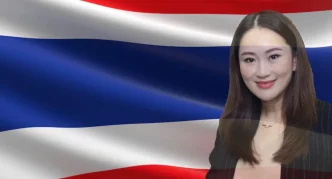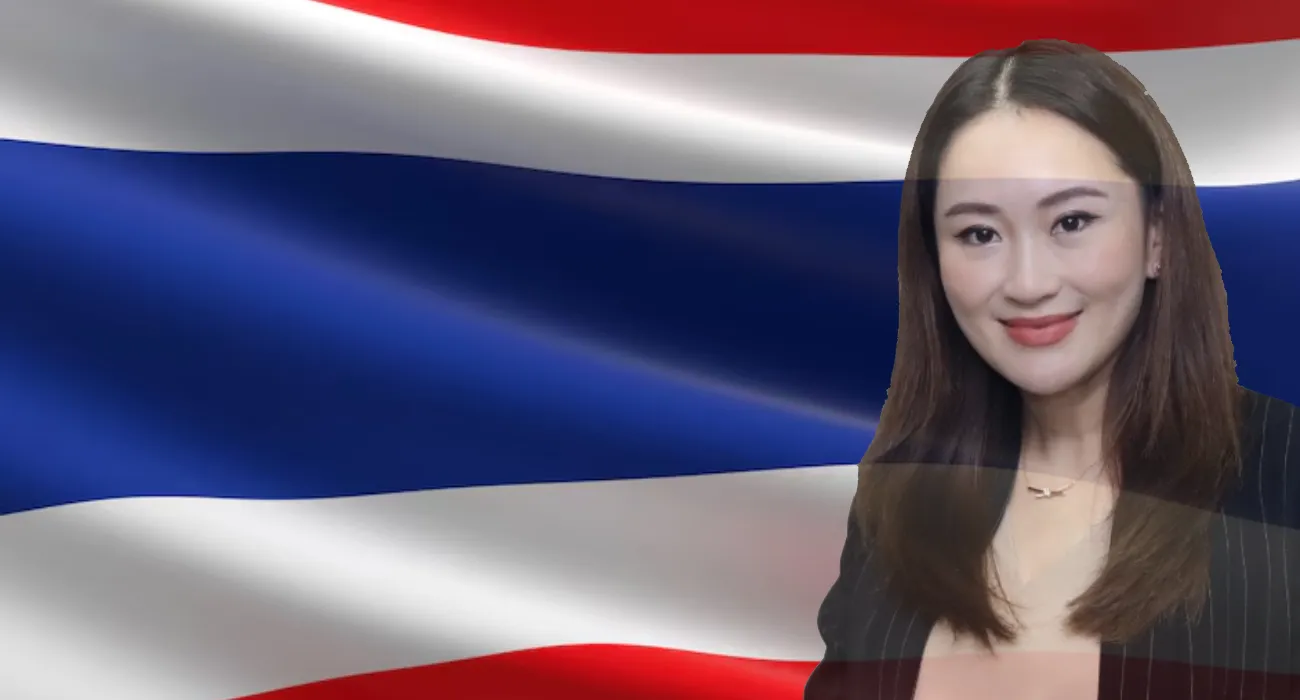Thailand’s Prime Minister Paetongtarn Shinawatra, now in her tenth month of leadership, is grappling with a cascade of political crises that threaten to destabilize her administration. From allegations of constitutional violations in the 2025 fiscal budget to unresolved corruption cases tied to her family, the government faces intense scrutiny at home and growing tensions along the Cambodia border. As accusations mount and legal battles loom, the stability of the ruling coalition hangs in the balance, raising questions about the future of her premiership.
Budget Controversy Sparks Legal Scrutiny
At the heart of the current storm is a preliminary investigation by the National Anti-Corruption Commission (NACC) into potential violations of Thailand’s Constitution during the drafting of the 2025 fiscal budget. The allegations, centered on Article 144, target Paetongtarn, former Prime Minister Srettha Thavisin, the entire Cabinet, and numerous parliamentarians and officials involved in the budget process. Over a hundred individuals have been implicated following complaints from figures such as Charnchai Isarasenaluk, a former Democrat Party MP, and political activist Nithithorn Lamleua.
Two distinct cases have emerged from these allegations. The first encompasses a broad sweep of government and legislative figures accused of procedural irregularities. The second focuses on specific MPs from the ruling Pheu Thai Party, including Saroj Hongchuwet and former minister Jakkapong Sangmanee, who are alleged to have misused their positions to influence budget allocations for a water management project worth 51.584 billion Thai Baht (US$1.46 billion). Critics claim the funds, channeled through local administrative organizations, were diverted for personal or party gain—a charge that could, if proven, lead to severe legal consequences.
The NACC has initiated a 60-day fact-checking period to assess the evidence. Should sufficient grounds be found, the matter could be escalated to the Constitutional Court, where a ruling against the government might result in the removal of Paetongtarn, her Cabinet, and numerous MPs and senators from office. Defending the administration, Minister of Digital Economy and Society Prasert Jantararuangtong has dismissed the accusations as politically motivated, while Deputy Prime Minister and Finance Minister Pichai Chunhavajira insists the budget process adhered to legal standards. Yet, with public trust already strained, the outcome of this investigation could prove pivotal.
Family Ties and Financial Allegations
Compounding the government’s challenges are financial controversies linked to Paetongtarn’s family, particularly her father, Thaksin Shinawatra, a polarizing figure in Thai politics. One issue involves promissory notes tied to a share sale worth over 4.4 billion Thai Baht (US$125 million) within the family, raising concerns about potential tax evasion on a sum of 218.7 million Thai Baht (US$6.2 million). Opposition MP Wiroj Lakkhanaadisorn of the People’s Party has spearheaded scrutiny of the transaction, labeling it a possible concealed legal maneuver to dodge taxes. The case remains under investigation by both the NACC and the Revenue Department, though progress has stalled due to delays in forming an advisory committee, according to Pichai Chunhavajira.
Another contentious matter revolves around a luxury resort, Thames Valley Khao Yai, located in a protected watershed area where development is restricted. People’s Party MP Theerachai Phanthumas has flagged irregularities in the land deed, suggesting potential legal violations. While still in preliminary investigation by the NACC, the case adds to the narrative of questionable dealings surrounding influential figures connected to the government.
The ’14th Floor Saga’ and Thaksin’s Shadow
Perhaps the most high-profile issue casting a shadow over Paetongtarn’s administration is the so-called “14th Floor Case” involving Thaksin Shinawatra. The former prime minister, previously convicted in three corruption cases, had his sentence reduced to one year via a royal pardon and was released earlier this year. However, Thaksin spent no time in prison, instead being transferred to the 14th floor of Police General Hospital on health grounds from the night of his sentencing. This arrangement has sparked outrage and legal questions about whether his confinement complied with the Supreme Court’s verdict.
The Supreme Court’s Criminal Division for Political Office Holders is set to hear the case on June 13, with the NACC representing the prosecution. While Thaksin will not attend in person, delegating representation to his legal team, the court’s ruling could have far-reaching implications. Separately, the Medical Council has moved to sanction three doctors involved in Thaksin’s treatment at the hospital, a decision that could be finalized on June 12 despite potential vetoes from council leadership. As these legal proceedings unfold, they continue to fuel public and political debate about privilege and accountability in Thailand’s elite circles.
Border Tensions and Coalition Fractures
Amid these domestic challenges, Paetongtarn’s government must also contend with escalating tensions along the Thailand-Cambodia border. A recent visit by the prime minister to Kap Choeng District in Surin Province, near the border, underscored the issue’s prominence, as she inspected a bunker in a symbolic gesture of concern for national security. While specific details of the current disputes remain limited, historical frictions over territory and cross-border activities have long strained relations, adding a geopolitical dimension to her administration’s woes.
Internally, the ruling coalition faces its own cracks. Political gamesmanship, including rumored Cabinet reshuffles, threatens to destabilize the fragile alliance of parties supporting Paetongtarn. The influence of Thaksin, often referred to in connection with the “14th floor,” remains a lightning rod for criticism, with opponents accusing the government of being overly beholden to his legacy. These dynamics, combined with unfulfilled election promises, have fueled public disillusionment, as many Thais question whether the administration can deliver on its pledges amid such turmoil.
Broader Implications for Thai Politics
The convergence of legal, financial, and political challenges facing Paetongtarn’s government reflects deeper systemic issues within Thailand’s political landscape. The recurring theme of corruption allegations—whether tied to budget processes, personal transactions, or past convictions—underscores persistent concerns about transparency and governance. Each case, while distinct, contributes to a narrative of distrust that could erode the administration’s legitimacy if not addressed decisively.
Moreover, the involvement of institutions like the NACC and the Constitutional Court highlights the judiciary’s critical role in shaping political outcomes in Thailand. Past rulings have unseated governments and disqualified politicians, and the stakes in these current investigations are no less significant. For Paetongtarn, navigating this legal minefield while maintaining coalition unity and public support will require deft political maneuvering—a tall order for a leader already under intense scrutiny.
The border situation with Cambodia, though less detailed in current reporting, serves as a reminder of external pressures that could further complicate domestic priorities. Thailand’s history of military and diplomatic friction with its neighbor suggests that any escalation could divert resources and attention from internal reforms, potentially exacerbating public frustration with the government’s performance.
Public Sentiment and Political Fallout
As these issues dominate headlines, public sentiment appears increasingly polarized. Supporters of Paetongtarn and the Pheu Thai Party argue that the accusations are part of a broader effort by opposition forces to undermine a democratically elected government. Critics, however, point to the accumulation of unresolved controversies as evidence of systemic flaws that transcend party lines. Social media platforms reveal a mix of frustration and skepticism, with many Thais expressing fatigue over recurring political dramas that seem to prioritize elite interests over public welfare.
Looking ahead, the outcomes of the NACC investigations, the Supreme Court’s ruling on Thaksin’s case, and the potential for Cabinet reshuffles will likely define the trajectory of Paetongtarn’s tenure. A failure to address these challenges transparently could embolden opposition movements, such as the People’s Party, which has already positioned itself as a vocal critic of the administration. Conversely, a successful defense against legal challenges might temporarily bolster her standing, though lingering doubts about accountability could persist.
As Thailand navigates this volatile period in June 2025, the Paetongtarn government stands at a crossroads. With corruption allegations, family controversies, and border tensions converging, the prime minister faces a test of leadership that could shape not only her political future but also the country’s democratic stability. Whether her administration can weather this storm remains an open question, one that Thais—and the international community—will watch closely in the weeks ahead.















